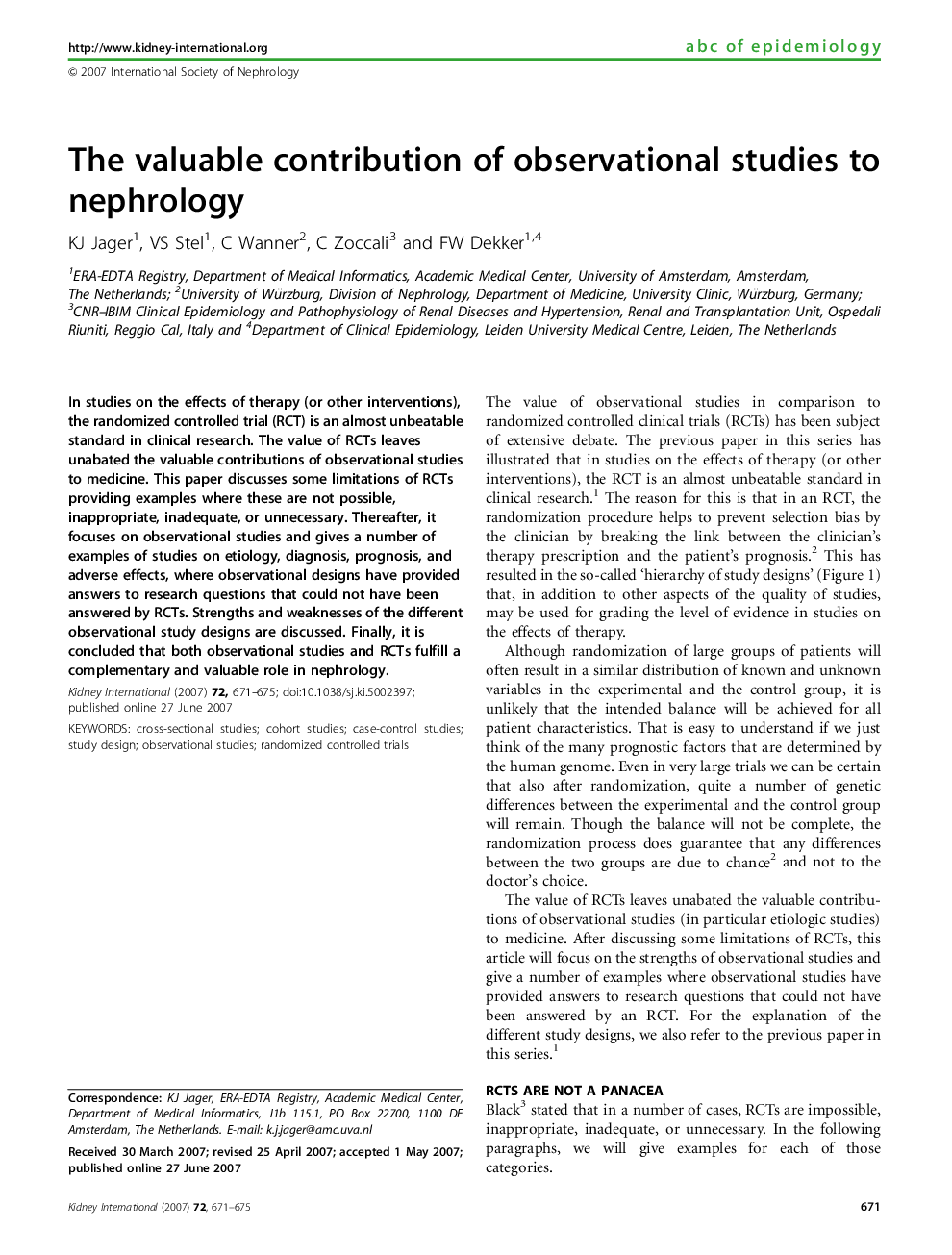| Article ID | Journal | Published Year | Pages | File Type |
|---|---|---|---|---|
| 3889041 | Kidney International | 2007 | 5 Pages |
In studies on the effects of therapy (or other interventions), the randomized controlled trial (RCT) is an almost unbeatable standard in clinical research. The value of RCTs leaves unabated the valuable contributions of observational studies to medicine. This paper discusses some limitations of RCTs providing examples where these are not possible, inappropriate, inadequate, or unnecessary. Thereafter, it focuses on observational studies and gives a number of examples of studies on etiology, diagnosis, prognosis, and adverse effects, where observational designs have provided answers to research questions that could not have been answered by RCTs. Strengths and weaknesses of the different observational study designs are discussed. Finally, it is concluded that both observational studies and RCTs fulfill a complementary and valuable role in nephrology.
